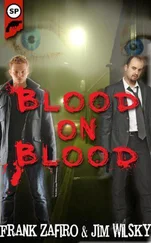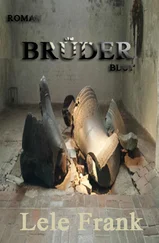Frank Tallis - Vienna Blood
Здесь есть возможность читать онлайн «Frank Tallis - Vienna Blood» весь текст электронной книги совершенно бесплатно (целиком полную версию без сокращений). В некоторых случаях можно слушать аудио, скачать через торрент в формате fb2 и присутствует краткое содержание. Жанр: Исторический детектив, на английском языке. Описание произведения, (предисловие) а так же отзывы посетителей доступны на портале библиотеки ЛибКат.
- Название:Vienna Blood
- Автор:
- Жанр:
- Год:неизвестен
- ISBN:нет данных
- Рейтинг книги:3 / 5. Голосов: 1
-
Избранное:Добавить в избранное
- Отзывы:
-
Ваша оценка:
- 60
- 1
- 2
- 3
- 4
- 5
Vienna Blood: краткое содержание, описание и аннотация
Предлагаем к чтению аннотацию, описание, краткое содержание или предисловие (зависит от того, что написал сам автор книги «Vienna Blood»). Если вы не нашли необходимую информацию о книге — напишите в комментариях, мы постараемся отыскать её.
Vienna Blood — читать онлайн бесплатно полную книгу (весь текст) целиком
Ниже представлен текст книги, разбитый по страницам. Система сохранения места последней прочитанной страницы, позволяет с удобством читать онлайн бесплатно книгу «Vienna Blood», без необходимости каждый раз заново искать на чём Вы остановились. Поставьте закладку, и сможете в любой момент перейти на страницу, на которой закончили чтение.
Интервал:
Закладка:
“What by?”
“I don't know. Another caller perhaps… The perpetrator then descended the stairs for the last time and made his exit through Borek's window. There's an alleyway at the back of the house.”
“Where does it come out?”
“It divides before joining roads at either side of the brothel.”
Liebermann poured himself and the inspector another brandy.
“He must have been covered in blood,” said Liebermann. “Drenched. He could never have left the apartment in such a state, even if Spittelberg is relatively quiet. He must have changed his clothes before leaving.”
“There were no discarded items of clothing in the area.”
“In which case he would have arrived and left with some kind of receptacle.”
Liebermann picked up the photographs again and found the close-up of Borek's throat.
“The cut is so deep: she's almost been decapitated. The perpetrator must have wielded a large knife or even a sword. During the autopsy Professor Mathias suggested a sabre, which might prove to be a highly relevant observation. Spittelberg lies between two barracks, and Marta Borek's bureau was filled with promissory notes from military men.”
“If it transpires that this carnage is the work of one of His Majesty's soldiers…”
“The emperor will be appalled!”
Liebermann flicked through the images once more and shook his head. “Surely, only a man who had some prior experience of killing would have dispatched so many bodies with such ruthless efficiency.” Liebermann's finger tapped against his right temple. “This is certainly the work of an individual inured to the sight of blood.”
“I am reminded,” said Rheinhardt, “of the famous Whitechapel murders.”
“Oh?”
“You are too young to remember-but they created a worldwide sensation. They took place in one of the poorest districts of London and were attributed to a man whom the English call Jack the Ripper.”
“Ah, yes,” said Liebermann-the name was not unfamiliar to him. “I believe the case is included in the latest edition of Krafft-Ebing's Psychopathia Sexualis.”
“The Ripper's victims,” Rheinhardt continued, “were also prostitutes and it was his habit to mutilate and remove their internal organs. The identity of the killer was never discovered, but I can remember some commentators proposing that his victims had died at the hands of a surgeon.”
“He was never discovered, you say?”
“No.”
“And when did these murders take place?”
“Let me see.” Rheinhardt did some mental calculations. “About thirteen or fourteen years ago.”
The two men looked at each other, raised their eyebrows, and simultaneously shook their heads.
“No,” said Liebermann, smiling awkwardly. “Nevertheless, one cannot help wondering what might have become of such a creature…”
The young doctor offered his friend another cigar, which Rheinhardt gladly accepted. They sat in silence, staring into the flames, both of them deep in thought. Occasionally Liebermann selected from the stack a single photograph, which he examined more intently. After some minutes had passed, he turned to Rheinhardt and said, “Clearly, this is no ordinary murder. Our perpetrator's heinous acts are much removed from the common criminal well-heads of greed, envy, and revenge. His motives are twisted and obscure, yet he is not entirely beyond the reach of modern psychology.”
Liebermann stubbed out his cigar in the ashtray.
“Your perpetrator hates women or, perhaps more precisely, the sexual power of women. This explains his choice of prostitutes as victims. He also chose to mutilate those areas of their bodies associated with reproduction: the genitals and belly. He was not content simply to murder these young women. He needed to annihilate their sex- utterly. I suspect that he is sexually inexperienced-possibly impotent-socially inept, and has at sometime in his life suffered greatly on account of being attracted to, or rejected by, a woman. However, even as I say these words, my account seems woefully incomplete. There is much, much more here…”
“Go on,” said Rheinhardt.
“Such ferocity,” Liebermann continued, “seems to betray a far deeper motivation-the influence of primal memories. Something happened to him in his childhood, something traumatic, that touches upon the erotic instinct but that also shaped his character. Whatever that event was-he blames women.”
Rheinhardt took out his notebook and jotted down a few of Liebermann's comments. Before he had finished writing, he said, “What do you make of that crooked cross? Why on earth did he bother to paint such a thing on the wall?”
“At first, it occurred to me that the perpetrator might be on some kind of religious crusade, working under the delusion that he is God's instrument, empowered to cleanse Vienna of moral impurities. However, if this were the case, then I would have expected him to have executed a more conventional crucifix-a long vertical line transected by a shorter horizontal one. I think, therefore, that this symbol has more personal than religious significance. It is, as it were, his calling card. It is also why I think that he is socially inept or ineffectual. In the absence of real status or achievement, the inconsequential person is often minded to leave his mark-his initials, or some other identifier-carved in a public place. It is his only method of leaving an impression on the world, his only claim on posterity. You will find several examples of such graffiti in the tower of the cathedral… In his sick mind, this atrocity”-Liebermann tapped the photographs-”has acquired the properties of an accomplishment, a proud creation for which he craves and desires recognition. He could not leave without first signing his ‘art.’ The strange cross is his signature.”
Rheinhardt placed the stub of his cigar in the ashtray and took the photographs back.
“Oskar,” said Liebermann, “with so much blood, were there no footprints on the floor? No impressions?”
Rheinhardt shook his head.
“So he is someone who is perhaps aware of police procedures?”
“It would seem so.”
Rheinhardt felt a nagging something at the back of his mind-a vague memory that he could not quite place. His brow furrowed and he twirled his mustache again.
“What is it?” said Liebermann, noticing his friend's mental effort.
“Nothing,” said Rheinhardt. Then, fixing Liebermann with his melancholy sagging eyes, he said, “He will do something like this again, won't he?”
“Yes,” said Liebermann, with economic bluntness. “And very soon, I expect.”
9
THE CHAMBER WAS FULL and the air hummed with the low drone of conversation. Those present were well dressed (tending toward sobriety) and were seated in the horseshoe arrangement of pews. The atmosphere was similar to that in a theater just before the curtain rises, but it was also ecclesiastical: an odd combination of excitement and reverence. In the front pew, close to the wooden throne, stood Professor Foch, Andreas Olbricht, and Hermann Aschenbrandt. The professor removed a watch from his fob pocket, flicked open the case, and observed the time.
“He's late,” said Olbricht.
“Yes,” replied the professor, dryly.
The door at the back of the chamber creaked open, and a short plump man entered. His cheeks were glowing and he was evidently in good spirits. The smile on his face was broad and radiant. He stopped to shake hands with one or two members of the assembly and was seen to nod vigorously in response to their inquiries.
“Hannisch looks happy,” said Olbricht.
“Then he must have arrived,” said Aschenbrandt.
Soon the monotonous drone that had filled the chamber was replaced by the rustling sibilance of subdued voices. Certain words and phrases became distinct:
Читать дальшеИнтервал:
Закладка:
Похожие книги на «Vienna Blood»
Представляем Вашему вниманию похожие книги на «Vienna Blood» списком для выбора. Мы отобрали схожую по названию и смыслу литературу в надежде предоставить читателям больше вариантов отыскать новые, интересные, ещё непрочитанные произведения.
Обсуждение, отзывы о книге «Vienna Blood» и просто собственные мнения читателей. Оставьте ваши комментарии, напишите, что Вы думаете о произведении, его смысле или главных героях. Укажите что конкретно понравилось, а что нет, и почему Вы так считаете.












